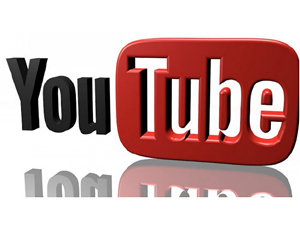



Date:18/01/18
 YouTube has announced new restrictions on who can make money on the site. A channel must have 1,000 subscribers and have surpassed 4,000 viewing hours in the last 12 months to earn ad revenue under the new plan.
YouTube has announced new restrictions on who can make money on the site. A channel must have 1,000 subscribers and have surpassed 4,000 viewing hours in the last 12 months to earn ad revenue under the new plan.
The changes will affect all new channels starting today and existing channels on February 20, 2018. If channels don’t satisfy the criteria, they will be removed from the YouTube Partner Program (YPP). YouTube’s blog post serves as a 30-day warning to all channels that are close to the threshold. In response, smaller channels are using the comments section of the blog post to advertise their channels. Many creators are offering “sub for sub”, where they’ll subscribe to any channel that does the same for them.
What’s the reason behind the new policy? YouTube says it’s to prevent bad actors from harming content creators. The blog post, written by Chief Product Officer Neal Mohan and Chief Business Officer Robert Kyncl states, “A big part of that effort will be strengthening our requirements for monetization so spammers, impersonators, and other bad actors can’t hurt our ecosystem or take advantage of you, while continuing to reward those who make our platform great.”
The move is stoking fears that the streaming video giant is going to kill smaller channels. The changes will affect a significant amount of channels, but by YouTube’s estimation, 99 percent of those are making less than $100 per year, and 90 percent made less than $2.50 in the last month. Channels under the threshold will be paid out what they’re owed and automatically re-evaluated if they meet the criteria at a later date.
The company came under fire last year for demonetizing videos without any communication. It appears now that YouTube is trying to effectively communicate its plan before it takes action. The problem is that they’re going after the wrong group of people. Most of its negative press is due to large content creators like Logan Paul, not a guy with 250 subs that releases a video once a month. YouTube is looking out for its community, but is this really the way to go about it?
YouTube makes it harder for smaller channels to monetize their videos
 YouTube has announced new restrictions on who can make money on the site. A channel must have 1,000 subscribers and have surpassed 4,000 viewing hours in the last 12 months to earn ad revenue under the new plan.
YouTube has announced new restrictions on who can make money on the site. A channel must have 1,000 subscribers and have surpassed 4,000 viewing hours in the last 12 months to earn ad revenue under the new plan.The changes will affect all new channels starting today and existing channels on February 20, 2018. If channels don’t satisfy the criteria, they will be removed from the YouTube Partner Program (YPP). YouTube’s blog post serves as a 30-day warning to all channels that are close to the threshold. In response, smaller channels are using the comments section of the blog post to advertise their channels. Many creators are offering “sub for sub”, where they’ll subscribe to any channel that does the same for them.
What’s the reason behind the new policy? YouTube says it’s to prevent bad actors from harming content creators. The blog post, written by Chief Product Officer Neal Mohan and Chief Business Officer Robert Kyncl states, “A big part of that effort will be strengthening our requirements for monetization so spammers, impersonators, and other bad actors can’t hurt our ecosystem or take advantage of you, while continuing to reward those who make our platform great.”
The move is stoking fears that the streaming video giant is going to kill smaller channels. The changes will affect a significant amount of channels, but by YouTube’s estimation, 99 percent of those are making less than $100 per year, and 90 percent made less than $2.50 in the last month. Channels under the threshold will be paid out what they’re owed and automatically re-evaluated if they meet the criteria at a later date.
The company came under fire last year for demonetizing videos without any communication. It appears now that YouTube is trying to effectively communicate its plan before it takes action. The problem is that they’re going after the wrong group of people. Most of its negative press is due to large content creators like Logan Paul, not a guy with 250 subs that releases a video once a month. YouTube is looking out for its community, but is this really the way to go about it?
Views: 458
©ictnews.az. All rights reserved.Similar news
- Cellphone Use May Raise Cancer Risk
- Australian police pushes cyber safety education
- Vietnam aims to lead in e-government
- Senate Website Gets Hacked
- US builds net for cyber war games
- Japan enacts anti-computer virus law
- India passes law vs e-waste
- Anonymous Declares War On The City Of Orlando
- Microsoft highlights evolving dangers as online identity data proliferates
- Consumers want internet security to be provided by banks
- Government facilities targets of cyber attack
- South Korean web attacks might been war drill
- Sri Lanka to Establish National Passport Database to Increase Border Security
- Hi-tech crime agencies set to employ information security professionals
- Phone hacking and online campaign bring down the News of the World





















